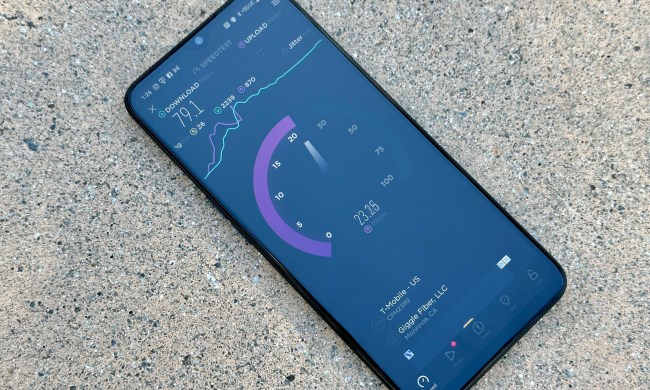The patent battle between chipmaker Broadcom and technology giant Qualcomm has taken a sudden turn: a federal judge has issued an injunction (PDF) that not only bars Qualcomm from selling wireless phone technology in the United States that infringes on three Broadcom patents, but Qualcomm is also enjoined from supporting existing products built using those technologies.
“We are very pleased with today’s ruling, which addresses Qualcomm’s improper use of our patented technology covering cellular chips and software for advanced consumer devices,” said Broadcom senior VP and general counsel David A. Dull, in a statement. “Broadcom should not have to compete against companies that use Broadcom’s own patented technology against us, and this injunction puts a stop to Qualcomm doing just that.”
The ruling marks the latest chapter in long-running patent battles between the two companies. Earlier this year, the Bush administration let stand an ITC decision that had Qualcomm paying Broadcom a $6-per-phone royalty for use of power-management technology. Judge James V. Selna’s current injunction applies to three Broadcom patents related to 3G mobile multimedia technology, simultaneous multi-network access, and push-to-talk capabilities.
The news isn’t all bad for Qualcomm: through January 2009, Qualcomm can continue to sell selected chips that infringe on Broadcom patents—and Qualcomm can keep selling chips it was offering as of May 29, 2007 to customers it had as of that date—through a “sunset” period ending January 31, 2009. But Qualcomm must pay mandatory royalties to Broadcom for those chip sales through the sunset period, and once it’s over, Qualcomm will be permanently barred from infringing on the three Broadcom patents. The two companies have also been ordered to negotiate a royalty for Qualcomm’s use of the push-to-talk patent at a meeting scheduled fo February 29, 2008.
Qualcomm’s move at this point will likely be an attempt to appeal the injunction, but Qualcomm is also likely to attempt to alter its chip designs so they no longer infringe on the Broadcom patents. The judge has ordered another meeting in February where the companies will need to file a joint report about Qualcomm’s efforts to work around Broadcom’s patents.

